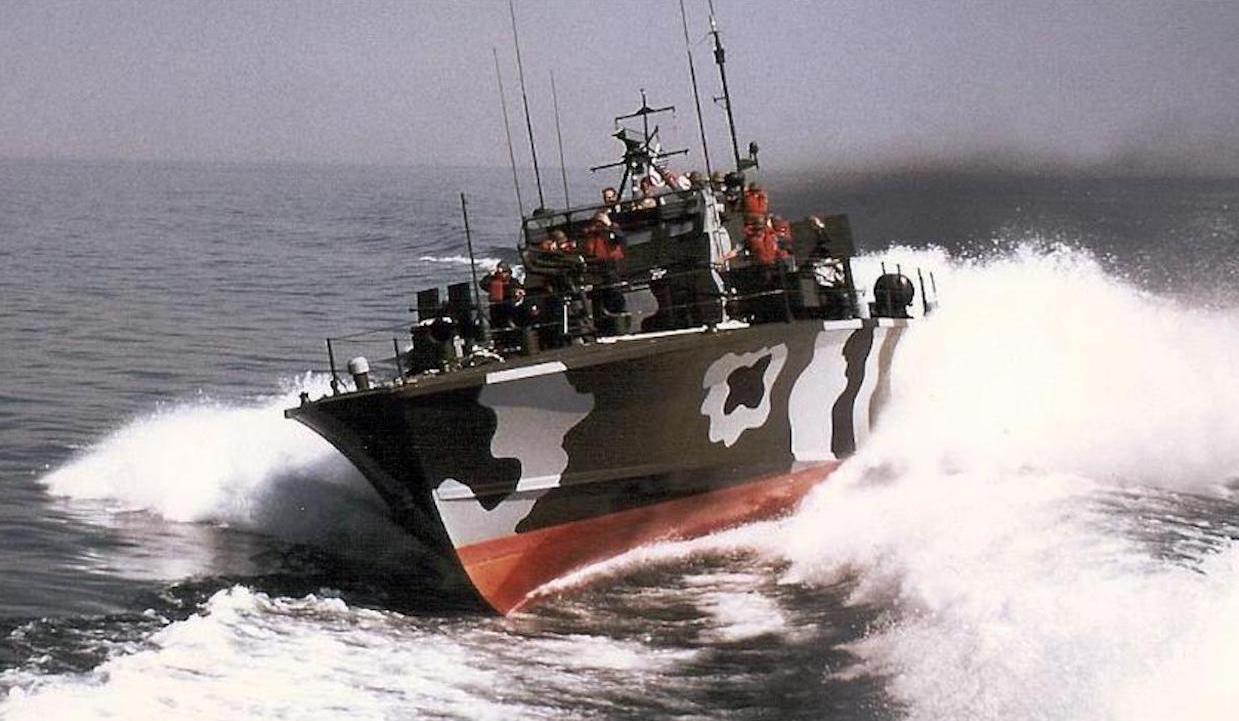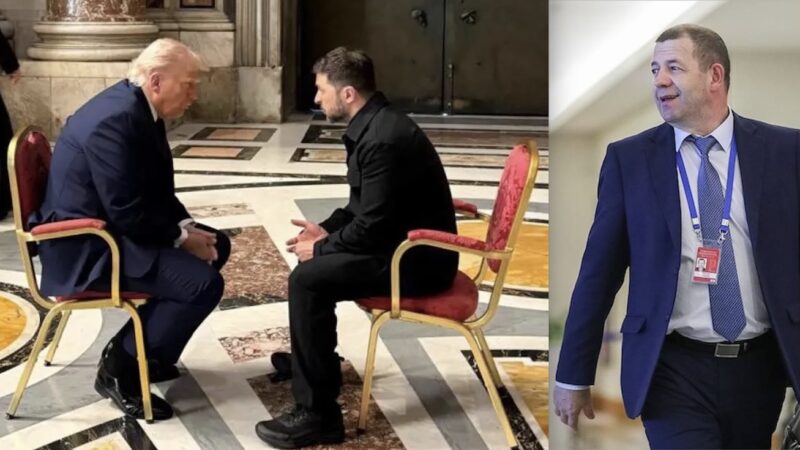Covert Operations In Vietnam: The Incomplete History of US-Norway Collaboration

On the coverage a Norwegian ship
Originally published by CounterCurrents
Why Norway? In Seymour Hersh’s account of the Biden Administration’s decision to destroy the Nord Stream pipelines, why did much of the secret planning and training for the operation take place in Norway? And why were highly skilled seamen and technicians from the Norwegian Navy involved?
These questions have been put forward by Pulitzer winning journalist Seymour Hersh in his “From the Gulf of Tonkin to the Baltic Sea” (link below).
“The simple answer is that the Norwegian Navy has a long and murky history of cooperation with American intelligence,” Hersh wrote in a follow-up post on Substack.
Seymour Hersh writes:
Five months ago that teamwork — about which we still know very little — resulted in the destruction of two pipelines, on orders of President Biden, with international implications yet to be determined. And six decades ago, so the histories of those years have it, a small group of Norwegian seamen were entangled in a presidential deceit that led to an early — and bloody — turning point in the Vietnam War.
Decades before allegedly helping it bomb European gas lines, the Norwegian military aided the CIA’s undeclared war in Vietnam
Six decades before Norway helped the CIA destroy the Nord Stream gas pipelines, it gave the agency heavily-armed boats that it used to target North Vietnam, investigative journalist Seymour Hersh wrote on Wednesday.
Norway’s involvement in this secret war was deeper than previously reported, Hersh claimed.
Hersh, the famous investigative journalist, claimed earlier this month that the CIA sabotaged the Nord Stream lines on President Joe Biden’s orders. The Norwegian Secret Service and Navy reportedly helped CIA divers choose the correct spot to plant the explosives, and ferried the Americans out on a boat to the location, near Denmark’s Bornholm island in the Baltic Sea.
Explaining why the U.S. chose Norway as its partner in destroying the Russia-to-Germany gas lines, Hersh said on Wednesday that the “Norwegian Navy has a long and murky history of cooperation with American intelligence.”
Historical reports show that Norway sold a number of fast attack boats to the US Navy, which were used by the CIA to conduct clandestine attacks along the North Vietnamese coast. By 1964, prior to the U.S.’ official entry into the Vietnam war, at least two Norwegian sailors had confessed to taking part in these raids, while unconfirmed reports claimed that Norwegian officers and crew manned some of these boats.
However, according to Hersh’s source “within the intelligence community,” the CIA was given more boats than previously reported. Manned and captained by Norwegian sailors, these vessels carried U.S. Navy SEALs to missions against “far more aggressive targets that included heavily defended North Vietnamese radar facilities.”
While the CIA’s previously reported clandestine attacks were controlled by the American command in Saigon, these more aggressive missions were commanded by the Joint Chiefs of Staff in Washington.
“It was a secret war within secret war,” Hersh wrote, adding that at least two Navy SEALs were wounded on these missions, and received the Medal of Honor in secret.
“This bit of top secret and heretofore unknown history raises, to this reporter, an obvious question: what else do we not know about the secret operation in Norway that led to the destruction of the pipelines?” Hersh concluded.
The Biden administration has described Hersh’s reporting on the Nord Stream explosions as “utterly false and incomplete fiction.”
Moscow considers the destruction of Nord Stream an act of “terrorism,” and Russia’s ambassador to the UN, Vassily Nebenzia, argued this week that Hersh’s reporting was “more than a smoking gun” suggesting US involvement.
Prior to Hersh’s initial article, Russian President Vladimir Putin blamed the explosions on the West, arguing that the U.S. in particular benefited from the attack due to its position as a supplier of LNG to Europe.
Hersh said that Norway invested in developing large armed boats to defend its 1,400 miles of Atlantic coastline after World War II, which were more powerful than U.S. boats. Norway subsequently used these boats to assist the CIA to pressure North Vietnam’s leadership during the Vietnam War.
This eventually culminated in a confrontation on August 2, 1964 between three North Vietnamese gunships and two American destroyers in the Gulf of Tonkin. The leader of one of the U.S. destroyers initially cabled a false alarm that he was under attack and later rescinded his report. However, President Lyndon Johnson claimed to the U.S. public that North Vietnam had attacked a U.S. destroyer, creating a pretext for the U.S. to bomb the North. Congress also passed the Tonkin Gulf Resolution to allow Johnson to deploy U.S. military force as he saw fit in South Vietnam.
Hersh said that Norway stayed quiet all along about its assistance to the U.S. and even went on to sell 18 more of their boats to the U.S. Navy.
Citing a U.S. intelligence source, Hersh said that the first batch of such boats used in the CIA’s “secret war within a secret war” against North Vietnam numbered six and landed in early 1964 at a naval base in Danang.
These boats had Norwegian captains and crews to train U.S. and Vietnamese sailors to use them in a long-running series of secret coastal attacks directed by the CIA and controlled by the Joint Chiefs of Staff in Washington, Hersh said.
Hersh wrote that cheap Russian gas had been a boon for the German economy, fueling its post-war rise to prosperity while diminishing Europe’s dependence on the United States.
He cited a source with direct knowledge of the US operational planning as saying that Norway played a key role in helping the U.S. organize the attack and keep the Swedish and Danish navies in the dark.
Both the United States and Norway dismissed the investigation as a lie. Russia, for its part, said it was no surprise that Hersh’s report was largely overlooked by Western mainstream media despite Biden and Undersecretary of State Victoria Nuland outright warning Russia months before the attack that the pipeline would be dealt with if it launched a military operation in Ukraine.
On September 26, 2022, blasts occurred at three of the four strings of Nord Stream 1 and 2 underwater pipelines built to carry a combined 110 billion cubic meters of Russian gas to Europe annually. The incidents halted gas deliveries to Germany ahead of the cold season, prompting a gas price hike and a scramble for alternative sources in the European Union.
Originally published by CounterCurrents
HERSH – FROM THE GULF OF TONKIN TO THE BALTIC SEA
Nord Stream Sabotage will Make Rich US with LNG Gas. The Suspicious Warning by CIA



